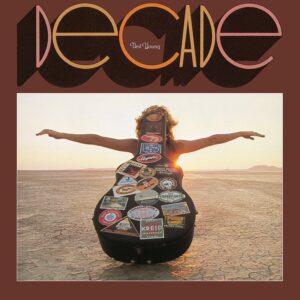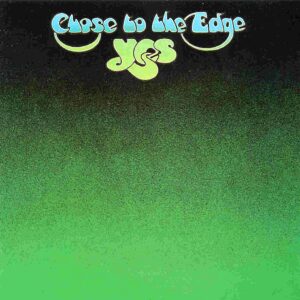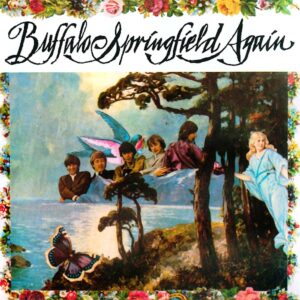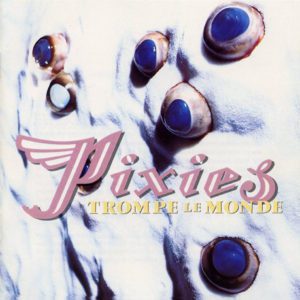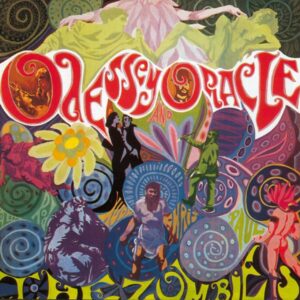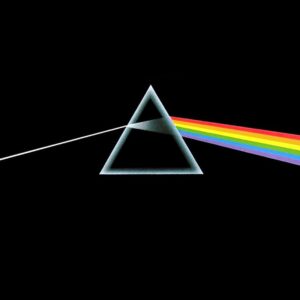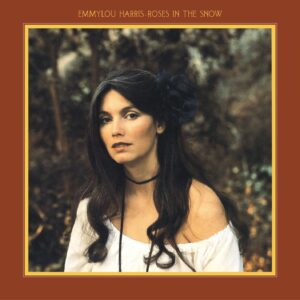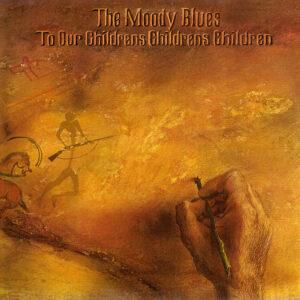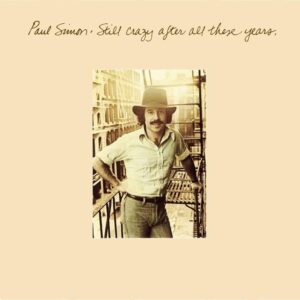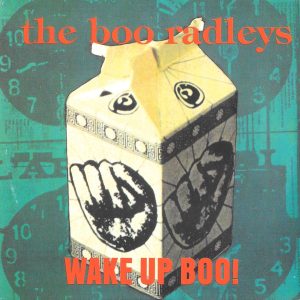
Julia Holter was born in Milwaukee, Wisconsin. Her family moved to Los Angeles when she was young. She studied music at The University of Michigan, earning a degree in composition. Inspired by avant-garde composer Michael Pisaro, she studied at CalArts.
After playing with 1970s psychedelic folkie Linda Perhacs, and recording CD-Rs, Holter released her official debut Tragedy in 2011. She’s enjoyed acclaim for the pop-oriented 2015 album Have You In My Wilderness and the immersive double album Aviary.
She’s literate, basing early albums on Greek tragedies. Holter’s influences include Alice Coltrane, Joni Mitchell, Scott Walker, Robert Wyatt, and Patti Smith, as well as modern classical music.
Julia Holter Album Reviews
Tragedy

2011, 6.5/10
Holter had self-released three albums previously. But Tragedy is generally reckoned as her official debut. It’s based on Euripides’ play Hippolytus, an ancient Greek tragedy about the son of minotaur-slayer Theseus.
Early in her career, and constrained by budget, Holter couldn’t access the musicians she wanted. Instead, she used electronic textures to fill the gaps. Self-taught, she produced and mixed the record herself.
The record arguably works best when Holter leans into these electronic textures. The synthetic-sounding ‘Goddess Eyes’ is the record’s most memorable song, which Holter would revisit (twice!) on Ekstasis.
The meat of the album is in the longer tracks. The slower tracks, like ‘The Failing Age’, resemble Grouper’s ambient experiments. Even weirder is ‘So Lilies’, with its integration of field recordings and use of repetition. With its choral and classical textures, ‘Finale’ is a more accurate presage of her later work.
Holter’s songwriting and arrangements developed over her following records. But she already has a fascinating artistic vision on Tragedy,
Ekstasis

2012, 7/10
Ekstasis is the Ancient Greek word for ecstasy. So the title posits it as the opposite of Tragedy. It’s certainly a warmer, happier album. There’s no overarching theme, it’s simply a collection of songs. Holter worked on Ekstasis simultaneously with Tragedy – so it’s impossible to argue that it’s an artistic progression.
Of the two albums, it’s my favourite. There’s more accessible material – ‘Our Sorrows’ has a conventional verse/chorus structure, while ‘In The Same Room’ ventures close to synth-pop.
There’s weirder stuff too – ‘Boy in the Moon’ and ‘This is Ekstasis’ both venture over eight minutes, with more exploratory sounds. ‘Goddess Eyes’ was one of my favourites on ‘Tragedy’, but having two more versions here feels excessive.
Ekstasis has some great moments, but Holter’s music would quickly progress past it.
Loud City Song

2013, 8/10
The concept for Loud City Song was developed during the recording of Ekstasis. The song ‘Maxim’s I’ was worked on during the Ekstasis sessions, but Holter felt it didn’t fit. Instead, she developed Loud City Song, an album of songs with the same theme. ‘Maxim’s I’ was written about the main character from Gigi walking into a bar and hearing the other patrons gossiping about her. The other songs are written about the effect of noise on city-dwelling people.
Holter’s first two records were often impressive. But Loud City Song is much more professional. She recorded in a proper studio, with other musicians playing orchestral parts. She worked with Cole M.G.N., who’s also produced for Beck.
‘Horns Surrounding Me’ is one of my favourite Holter tracks, written about media frenzies over celebrities. It builds to an exciting crescendo, with its layers of horns and galloping percussion. Often her art-pop is more sedate – a cover of Barbara Lewis’s ‘Hello Stranger’ shows off her vocal prowess. ‘This Is A True Heart’ is pretty and accessible, like 1980s Japanese city pop. A frenetic bassline runs through ‘Into The Green Wild’, while ‘City Appearing’ is languid and gorgeous.
Set loose in a proper studio for the first time, Holter’s unfettered creativity sounds lovely on Loud City Song.
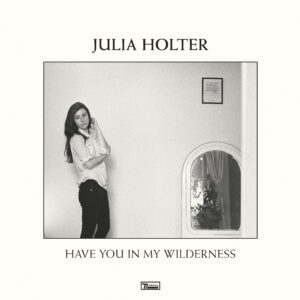
Have You In My Wilderness
2015, 9/10
While Loud City Song had a unifying concept, Have You In My Wilderness is a collection of songs. Holter had been playing ‘Sea Calls Me Home’ and ‘Betsy on the Roof’ live for years.
She cited Scott Walker’s 1969 song ‘Duchess’ as a key influence on her approach – a “warm, golden” collection of songs. She concedes that she didn’t fully capture the same feel, but it makes sense – it’s a collection of largely accessible songs, with pretty vocals and orchestration.
In particular, the album’s singles present Holter at her most accessible. ‘Feel You’ is a gorgeous opener, with a warm art-pop sound and Holter’s vocals higher in the mix than previously. ‘Sea Calls Me Home’ feels like 1960s chamber pop, based around piano and featuring an abrasive saxophone solo. ‘Silhouette’ is built around a funky fretless bassline.
The longer tracks are overshadowed by Holter’s excursions into poppy territory. But there’s a great hook at the end of ‘Lucette on the Island’. Holter’s takes on jazz-tinged torch songs, ‘Betsy on the Roof’ and ‘Vasquez’, are pretty.
Accessible and pretty, Have You In My Wilderness is a great entry point into Holter’s discography.
Aviary

2018, 9/10
It’s tempting to conclude that, in the era of streaming, the album is merely a mechanism to garner extra plays on Spotify. But records like Julia Holter’s grandiose Aviary demonstrate that the long player is still the prestige format.
Aviary is centred on Holter’s piano, synthesizers, and voice. Holter’s accompanied by fluid double bass and orchestral instruments. The music’s often unplanned, giving Aviary an exploratory feel, and Holter’s cited Alice Coltrane as a key influence for the record. Even the album’s first single and easiest entry point, ‘I Shall Love 2’, is far from straightforward, eschewing hooks for shimmering textures and layered vocals.
Holter’s lyrics are often influenced by books – her music often draws on literary sources. Among the quoted material for Aviary are Occitan folk songs, Sappho, Dante, Alexander Pushkin, and novelist Etel Adnan. Holter described her writing process in an interview with Under The Radar:
There’s a song on the record called ‘Colligere’ which apparently means like “to collect / gather,” and for a long time I’ve thought about that word as a way to describe my writing process. A lot of times I feel like I’m gathering layers of different things, both with sounds and with words, and both my own sounds and words and others’ found sounds and words. And, especially with words, since it’s language and thus coming from a communication-based form (as opposed to sound, which I find much easier to spontaneously create/improvise with without imposed thought), I find it more fun to gather other texts that are not my own, to build a collection of voices and contribute to the sort of endless process of translation that art is.
Julia Holter, interviewed in Under The Radar
Aviary has the potential to fall apart under its own weight, but it works because of its intrinsic beauty – Holter’s voice and piano work are pretty, and anchor what can at times be a challenging listen. Holter’s stated that Aviary is not necessarily designed to be listened to in one sitting – I’ve found that it’s fine to dip in and let its beauty wash over you for a few songs at a time.
Aviary is a brave, bold record – after a dozen listens I feel like I’ve merely scratched the surface. It’s not an easy album to digest, but Aviary may well be the record that Holter is remembered for.
Behind the Wallpaper (with Spektral Quartet and Alex Temple)
2023, not rated
Holter serves as the vocalist for this collaboration. The work was composed by Alex Temple, about her gender transition. She’s accompanied by Chicago’s Spektral Quartet.
Something In The Room She Moves

2024, 7.5/10
Holter took a lengthy break before her sixth album. She became a mother during the 2020 COVID-19 pandemic. This made it difficult for her to read, whereas literature was often a source of inspiration for her work. The album’s creation was also complicated when she lost her voice due to COVID. She had to record her vocals at the last minute.
Something in the Room She Moves works stylistically. It finds an ideal middle ground between the accessibility of Have Your In My Wilderness and the experimental urges of Aviary. But despite the long gestation period, the songs aren’t as consistently satisfying as her best work. She’s accompanied by a band, including Devin Hoff on fretless bass and her husband Tashi Wada on synths and bagpipes.
It’s a little inconsistent, but there are some strong tracks nonetheless. Spinning is more upfront and abrasive than usual for Holter, with a memorable chorus.
10 Best Julia Holter Songs
Horns Surrounding Me
Feel You
Spinning
I Shall Love 2
Sea Calls Me Home
City Appearing
Silhouette
Our Sorrows
In Gardens’ Muteness
Evening Mood
Related Pages
About
Aphoristic Album Reviews is almost entirely written by one person. It features album reviews and blog posts across a growing spectrum of popular music.
Review Pages
Read about the discographies of musical acts from the 1960s to the present day. Browse this site's review archives or enjoy these random selections:
Blog Posts
I add new blog posts to this website every week. Browse the archives or enjoy these random selections:





